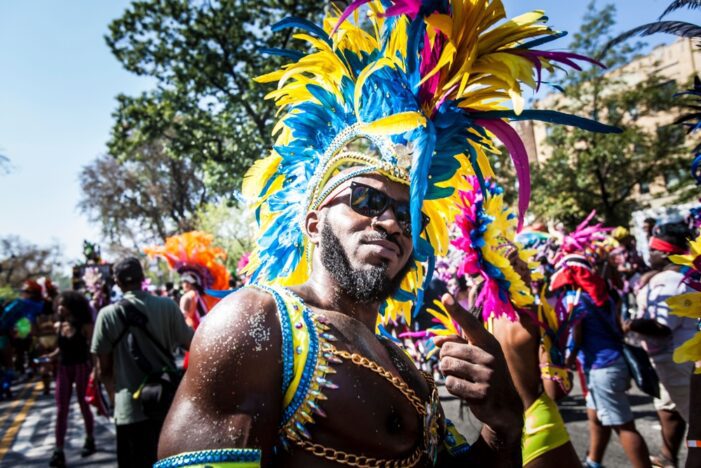As the Labor Day carnival nears, the president of the West Indian American Day Carnival Association shares his insight on what makes the celebrations memorable.
By: Fenix Suriel |Editorial credit: Wirestock Creators / Shutterstock.com
The 2025 Labor Day theme is “Viva la Carnival,” emphasizing the event’s vibrant celebration of culture and historical significance.
“I think that theme embodies everything that you’re going to see this year on Labor Day, in terms of the color, in terms of the separation of colors, in terms of the hues that I use, you know, would be more aching to what you see in nature, What’s alive, the revelry, the even some of the the the Soca songs that are going to be playing and blaring on those loudspeakers, as well as the steel pan music that’s going to be played,” said Roger Archibald, President of the West Indian American Day Carnival Association.
The West Indian American Day Carnival Association, also known as WIADCA, was established in 1967, with roots tracing back to the 1920s in Harlem. The carnival, held on Eastern Parkway in Brooklyn, has garnered political attention and showcases the diverse contributions of the Caribbean community.
Initially held indoors due to the weather, the event traditionally was held in February, but the New York City climate isn’t at its best. The event’s date was later moved to allow planning for outdoor festivities in the 1960s.
The founding vision was to continue the tradition that began in Trinidad and Tobago.
The soul of the Caribbean people has shaped the history of the West Indian American Day Carnival Association. Early celebrations were held indoors. Traditionally, the celebrations have always been in February, but there was only one issue: the weather.
“When Miss Waddell came to the States and tried to institute the same thing up in Harlem in the 20s and 1920s, you couldn’t celebrate outdoors like you would in Trinidad,” said Archibald.
The carnival dealt with a period of disorganization. The permit to hold the carnival in Harlem was revoked in 1964. Organizing remained inactive for five years until a committee organized by Carlos Lezama, the man many got to know as “the father of Brooklyn carnival,” obtained another permit for a parade on Eastern Parkway, Brooklyn. The parade has been held there ever since.
At this point, the organization began holding the carnival in September, and it has been moved back outdoors.
Navigating the challenges of maintaining cultural authenticity while adapting to the changing social, political, and economic climates can be tricky in New York City. Still, where many see struggle, Archibald sees beauty.
“When people leave their home of origin, and they come here, they are forced to live with and work with and interact with many different ethnic groups, many different cultures,” Archibald explained.
However, something happens when cultures from various parts of the world collide. “You get to be exposed to the different cultural norms, and the more rights you get to listen to the music, you get to interact with the people on a personal level, and that, in turn, changes you not for the worse, but for the better, because you become more worldly,” said Archibald.
WIADCA takes pride in the tradition it is expanding upon. One of President Archibald’s favorite characteristics has been inclusivity. A tradition that originated in Trinidad now sees involvement from all Caribbean countries.
“The transformative moments definitely have got to be political in nature,” said Archibald.
“We’ve had presidential candidates, US senators, us, House of Representative members, the governor, the mayor, assembly people, Congress people, state senators, anybody who is worth his or her salt wants to be a part of the Caribbean parade, and the Caribbean community in particular, tend to be one of the most fastidious members of our society,” said Archibald.
The organization also engages in year-round educational programs in New York City schools, teaching steel pan music and costume design. “We are providing this as an adjunct to their school education,” said Archibald.
Since many of the younger generations were born away from the Caribbean, ensuring they remain connected to the traditions of their culture can be a challenge in such a big and diverse city, but to Archibald, it is imperative.
“We’re guaranteeing our survival by making sure we get them from an early age in school,” he said.


